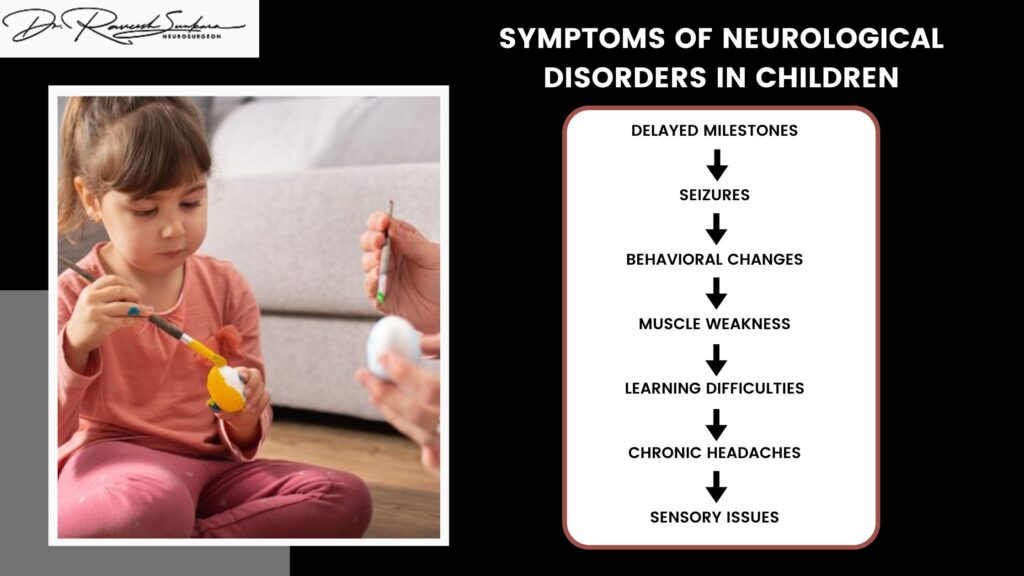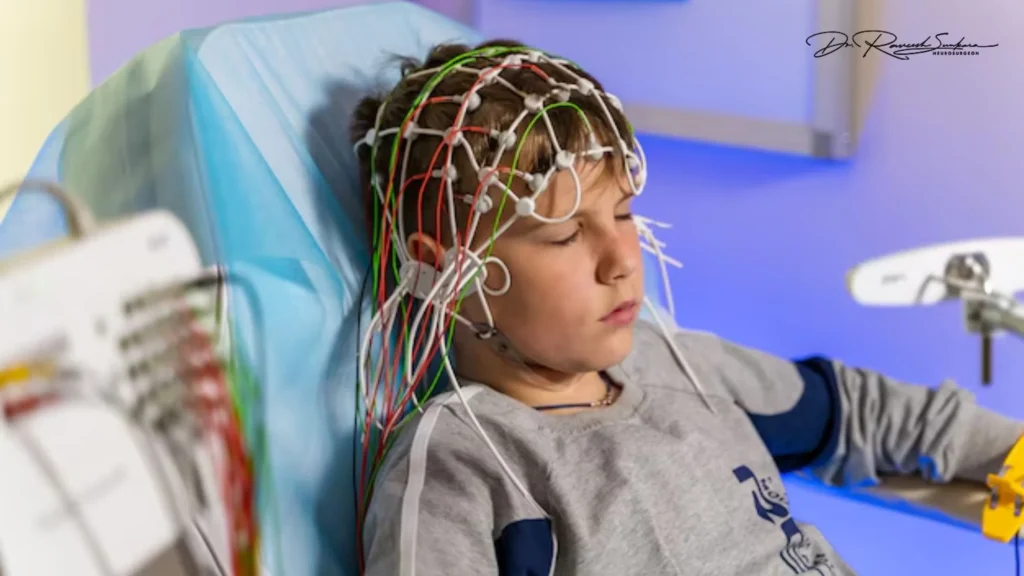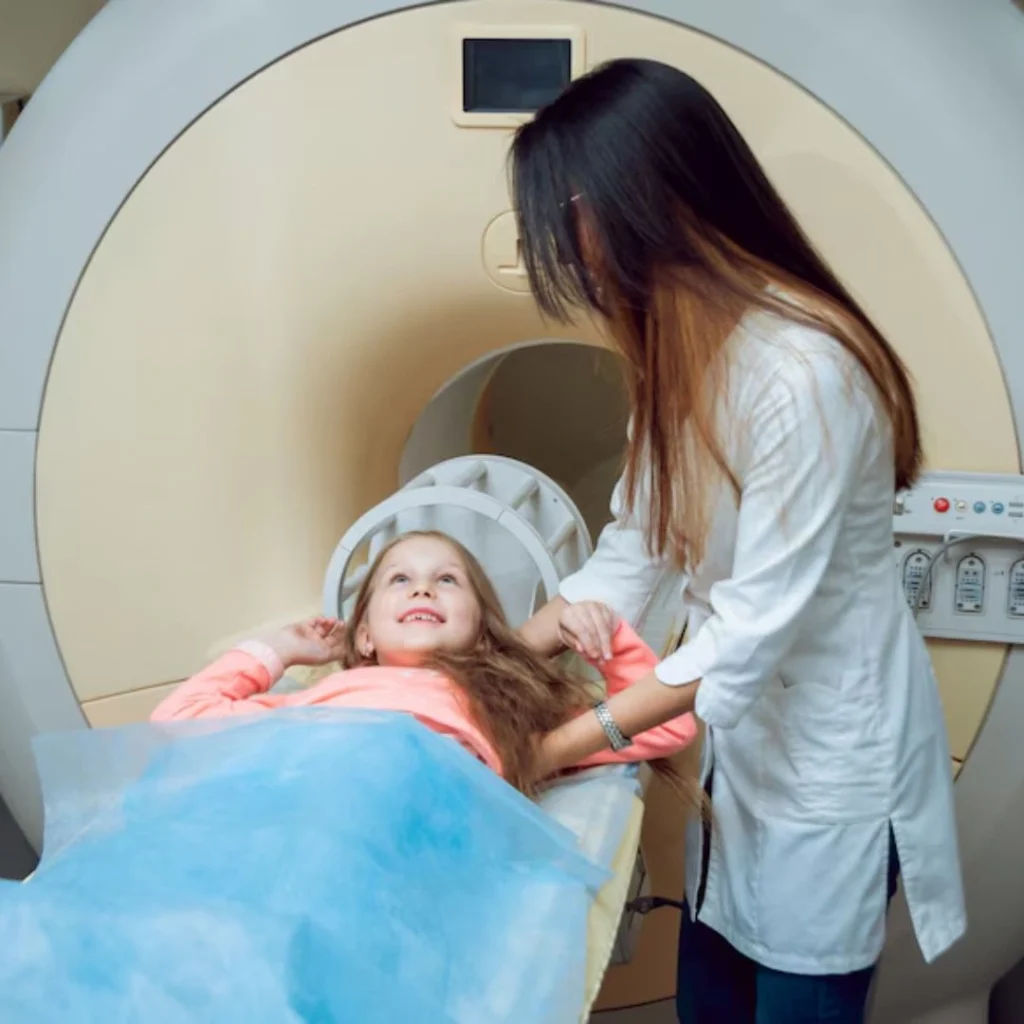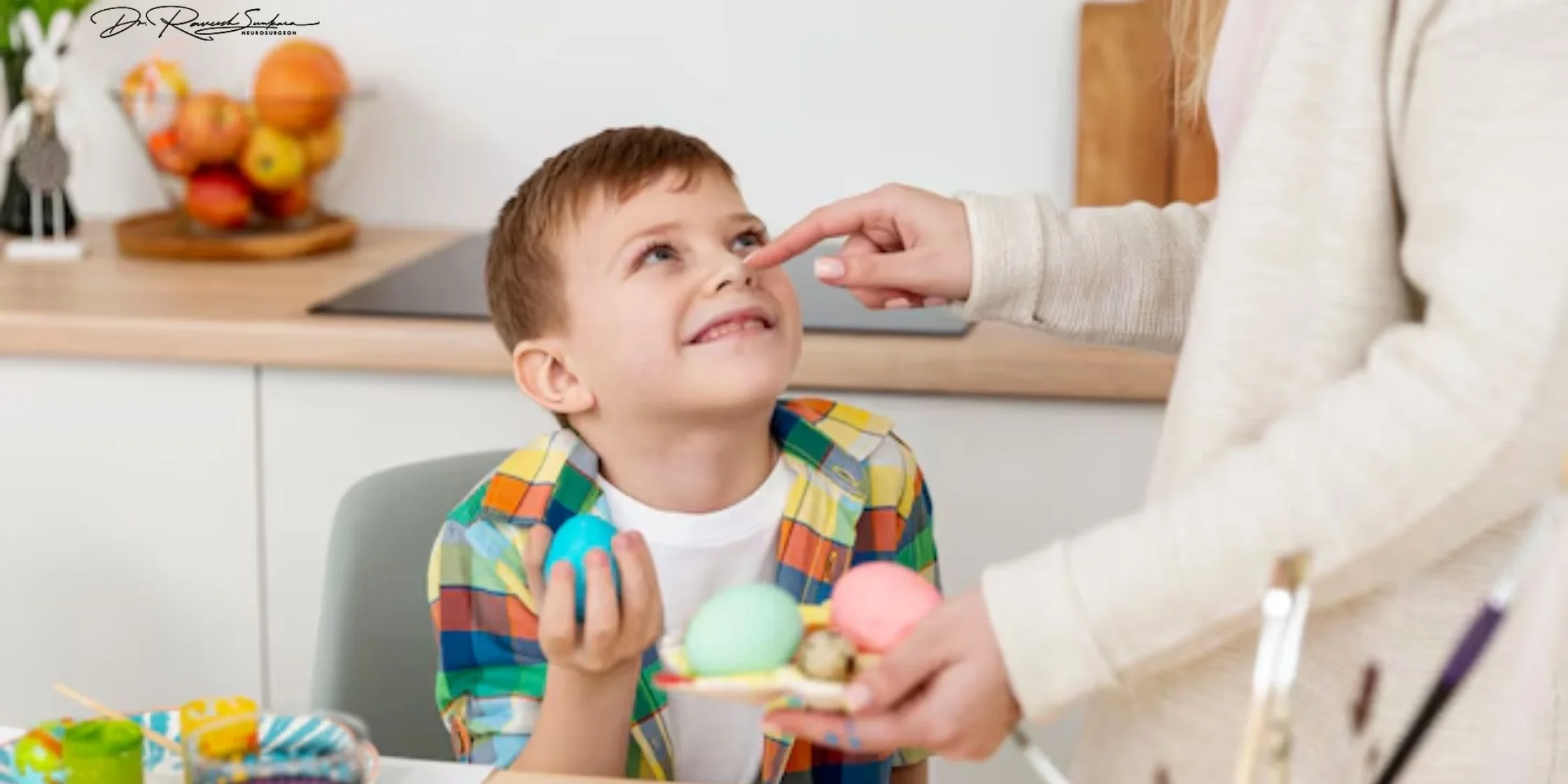Childhood is a time of discovery, growth, development, and limitless energy. However, for some children, the presence of neurological disorders can disrupt this natural flow, leading to physical, emotional, or cognitive challenges. Understanding what is a neurological disorder and recognizing the symptoms early are essential for ensuring timely intervention.
According to a recent study, the prevalence of neurological disorders in India ranges from 967 to 4,070 per 100,000 population, emphasizing the growing need to address brain health in children. Learn more about brain health in India here.
Childhood Neurological Disorders—also referred to as pediatric neurological disorders—can manifest in various ways. From developmental delays to chronic conditions that require lifelong care, these disorders need expert attention. Parents often wonder when to consult the best neurosurgeon in Hyderabad or the top neurologist hyderabad, such as Dr. Raveesh Sunkara, who is renowned for treating such conditions with compassion and expertise.
In this article, we’ll explore neurological disorders symptoms, their causes, and when you should seek help from a specialist.
Understanding Childhood Neurological Disorders
Pediatric neurological disorders include a variety of conditions that impact the nervous system. These disorders can be present at birth, develop later, or result from injury or illness. Recognizing early signs can make a significant difference in managing the condition.
Common Pediatric Neurological Disorders
- Epilepsy: Characterized by recurrent seizures, epilepsy is one of the most common pediatric neuro disorders.
- Cerebral Palsy: A condition caused by brain damage before, during, or shortly after birth, affecting movement and posture.
- Autism Spectrum Disorder (ASD): A developmental disorder impacting communication and behaviour.
- Attention-Deficit/Hyperactivity Disorder (ADHD): A neurodevelopmental disorder affecting focus, impulsivity, and activity levels.
- Muscular Dystrophy: A genetic disorder that leads to progressively worsening muscle weakness.
Symptoms of Neurological Disorders in Children
Identifying neurological disorder symptoms early is crucial.
- Delayed milestones: Delayed crawling, walking, or speaking.
- Seizures: Recurrent or unexplained seizures.
- Behavioral changes: Unusual irritability, aggression, or withdrawal.
- Muscle weakness: Difficulty in movement or maintaining posture.
- Learning difficulties: Challenges in grasping concepts or concentrating.
- Chronic headaches: Frequent or severe headaches that disrupt daily activities.
- Sensory issues: Hypersensitivity to touch, sound, or light.

If you experience any of these symptoms, please consult a specialist Dr. Raveesh Sunkara, widely regarded as the top neurosurgeon in Hyderabad and the best neuro physician Hyderabad.
Causes of Neurological Disorders in Children
Understanding the cause of neurological disorders helps in early diagnosis and targeted treatment.
- Premature Birth: Babies born prematurely are at a higher risk of developing neurological issues due to underdeveloped brain structures.
- Autoimmune Conditions: Certain autoimmune disorders can attack the nervous system, causing inflammation and long-term damage.
- Metabolic Disorders: Conditions like phenylketonuria (PKU) or mitochondrial diseases disrupt brain function and overall growth.
- Exposure to Drugs or Alcohol: Maternal use of drugs, alcohol, or tobacco during pregnancy can severely affect fatal brain development.
- Nutritional Deficiencies: A lack of essential nutrients, such as folic acid and iron, during pregnancy can lead to neurological complications.
- Birth Complications: Issues such as oxygen deprivation or difficult deliveries can cause brain damage, resulting in long-term neurological disorders.
- Developmental Anomalies: Congenital structural abnormalities like spina bifida or anencephaly may directly impact the nervous system.
- Chronic Health Conditions: Diseases like epilepsy or diabetes in children may trigger or exacerbate neurological symptoms over time.
- Tumours or Growth Abnormalities: Brain tumours or cysts can disrupt neurological development and function.
- Postnatal Infections: Illnesses like chickenpox, measles, or mumps, when severe, can impact the central nervous system.
- Toxin Exposure Post-Birth: Exposure to lead, mercury, or other toxins during infancy can cause severe neurological damage.
- Genetic Mutations: Some neurological disorders causes due to genetic mutations, even without a family history.
- Emotional and Psychological Stress: Severe stress or neglect in early childhood can impact neurological development and lead to long-term effects.
When to See a Specialist
Early intervention is key when dealing with pediatric neuro disorders. If your child exhibits any of the following, consult an expert immediately:

- Persistent seizures or uncontrolled movements.
- Noticeable delays in speech, motor, or cognitive development.
- Sudden behavioural changes or difficulty in social interactions.
- Symptoms of chronic pain, such as unrelenting headaches.
- Weakness in limbs or loss of balance.
Dr. Raveesh Sunkara, a recognized name in neurology, offers tailored treatments to address various conditions. Seeking advice from the best neurologist in Hyderabad ensures your child gets the care they need.
How Specialists Diagnose and Treat Neurological Disorders
Specialists use a combination of techniques to diagnose neurological disorders, including:
- Medical History Review: Understanding symptoms and the importance of family history.
- Physical Exams: Assessing reflexes, strength, and coordination.
- Imaging Tests: MRIs or CT scans to detect abnormalities.
- Electroencephalograms (EEG): Measuring brain activity to diagnose seizures.

Treatment options may include:
- Medication: For controlling seizures, managing pain, or improving symptoms.
- Therapies: Speech, occupational, or physical therapy to enhance daily functioning.
- Surgery: For severe cases requiring intervention, such as brain surgery for epilepsy.
Managing and Supporting Children with Neurological Disorders
A supportive environment is critical for children with pediatric neuro disorders. Parents can have a significant impact by:
- Educating Themselves: Understand the condition to better support your child.
- Therapeutic Support: Engage in recommended therapies regularly.
- Emotional Care: Offer encouragement and celebrate small milestones.
- School Collaboration: Work with teachers to create an inclusive learning plan.
Consult Dr. Raveesh Sunkara Today!
Neurological disorders in children can be challenging, but with the right care, children can lead fulfilling lives. If you’re in Hyderabad and looking for expert advice, consult Dr. Raveesh Sunkara, widely known as the best neurosurgeon in Hyderabad and the top neurosurgeon in Hyderabad.
Take the first step toward better care for your child. Schedule an appointment with a specialist today to ensure their well-being and development.
FAQs
What is a neurological disorder?
A neurological disorder is a condition affecting the brain, spinal cord, or nerves, impacting functions like movement, speech, or cognition.
What are some common pediatric neurological disorders?
Conditions include epilepsy, cerebral palsy, autism spectrum disorders, ADHD, and muscular dystrophy.
What are the neurological problems symptoms in children?
Symptoms include developmental delays, difficulty walking, muscle weakness, seizures, and trouble concentrating.
What causes neurological disorders in children?
Neurological disorders can result from a variety of factors, including genetics, prenatal complications, infections, or injuries.
Are all neurological disorders in children chronic?
No, not all. While some are chronic (e.g., epilepsy), others may improve with treatment.
What does chronic neurological conditions meaning?
Chronic neurological conditions are long-term disorders that may require ongoing care and management.
When should I consult a specialist for my child’s neurological issues?
Seek help if your child shows persistent symptoms such as seizures, delayed milestones, or behavioural changes.







